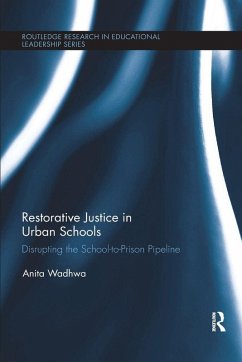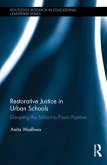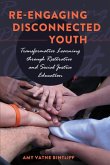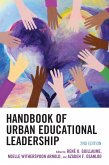The school-to-prison pipeline is often the path for marginalized students, particularly black males, who are three times as likely to be suspended as White students. This volume provides an ethnographic portrait of how educators can implement restorative justice to build positive school cultures and address disciplinary problems in a more corrective and less punitive manner. Looking at the school-to-prison pipeline in a historical context, it analyzes current issues facing schools and communities and ways that restorative justice can improve behavior and academic achievement. By practicing a critical restorative justice, educators can reduce the domino effect between suspension and incarceration and foster a more inclusive school climate.
Hinweis: Dieser Artikel kann nur an eine deutsche Lieferadresse ausgeliefert werden.
Hinweis: Dieser Artikel kann nur an eine deutsche Lieferadresse ausgeliefert werden.








